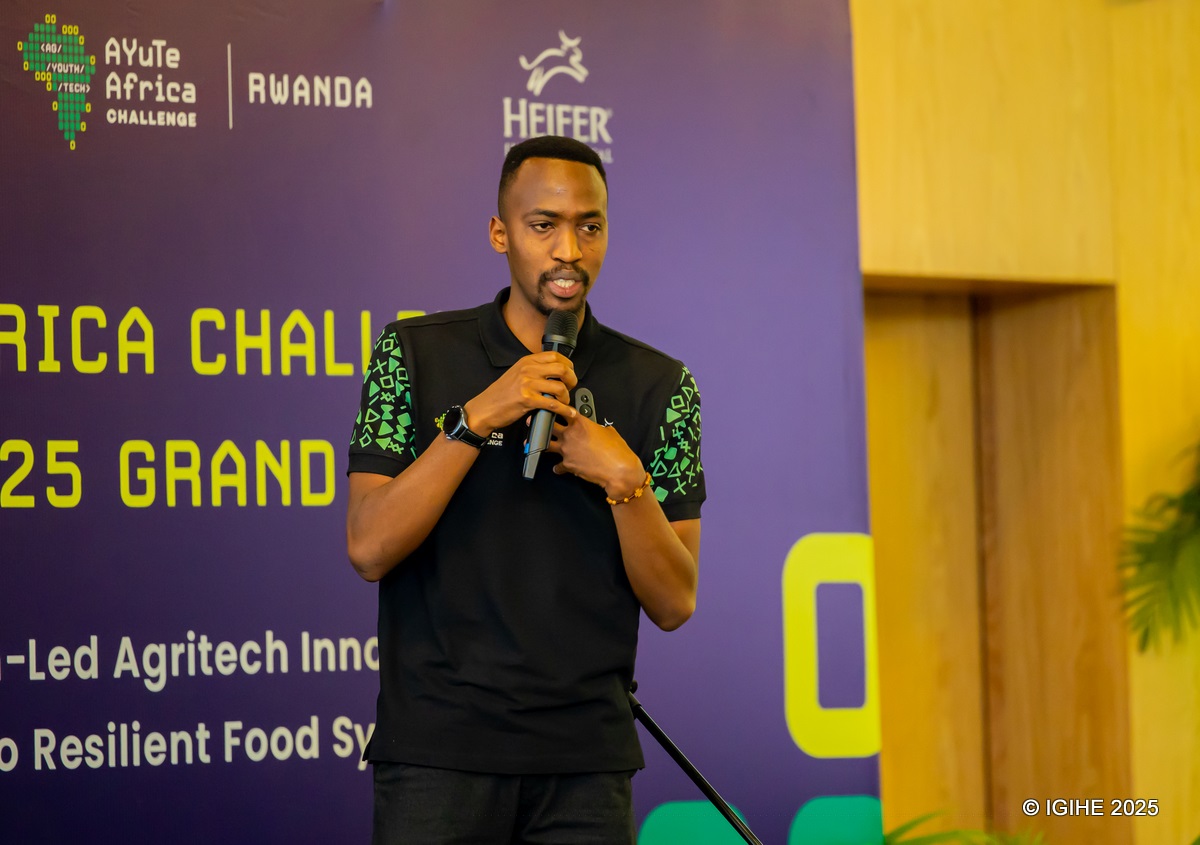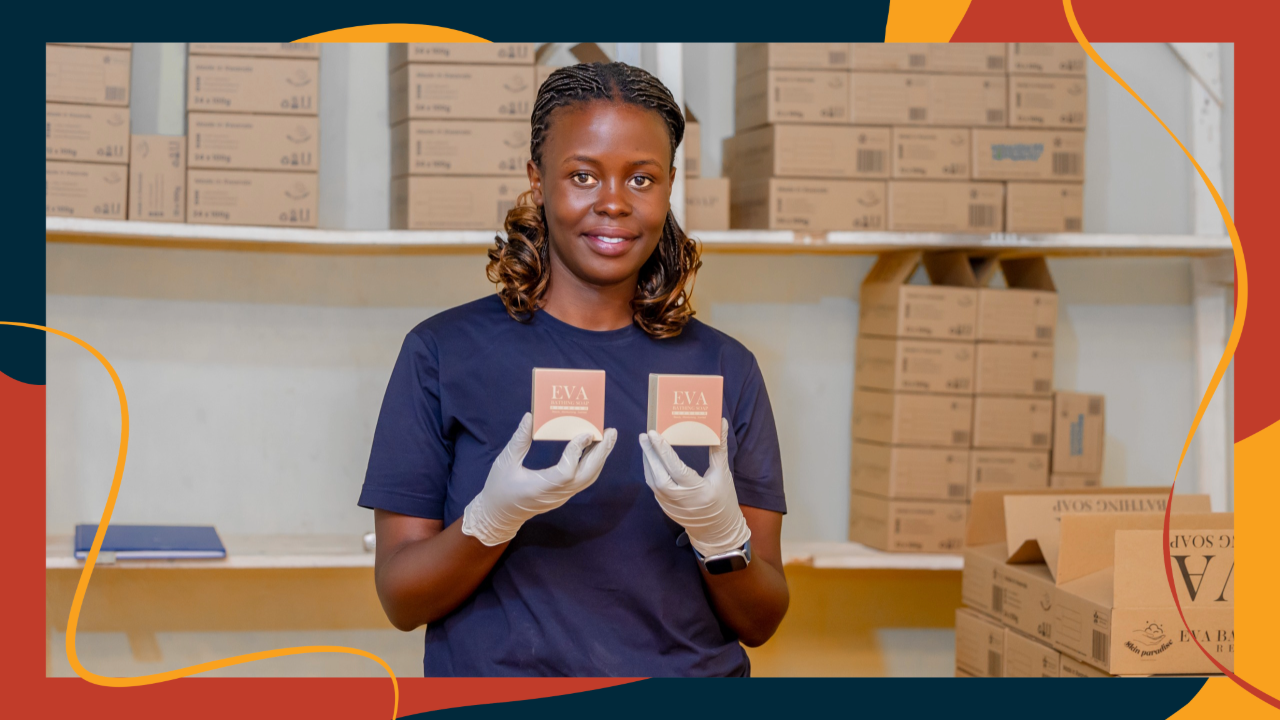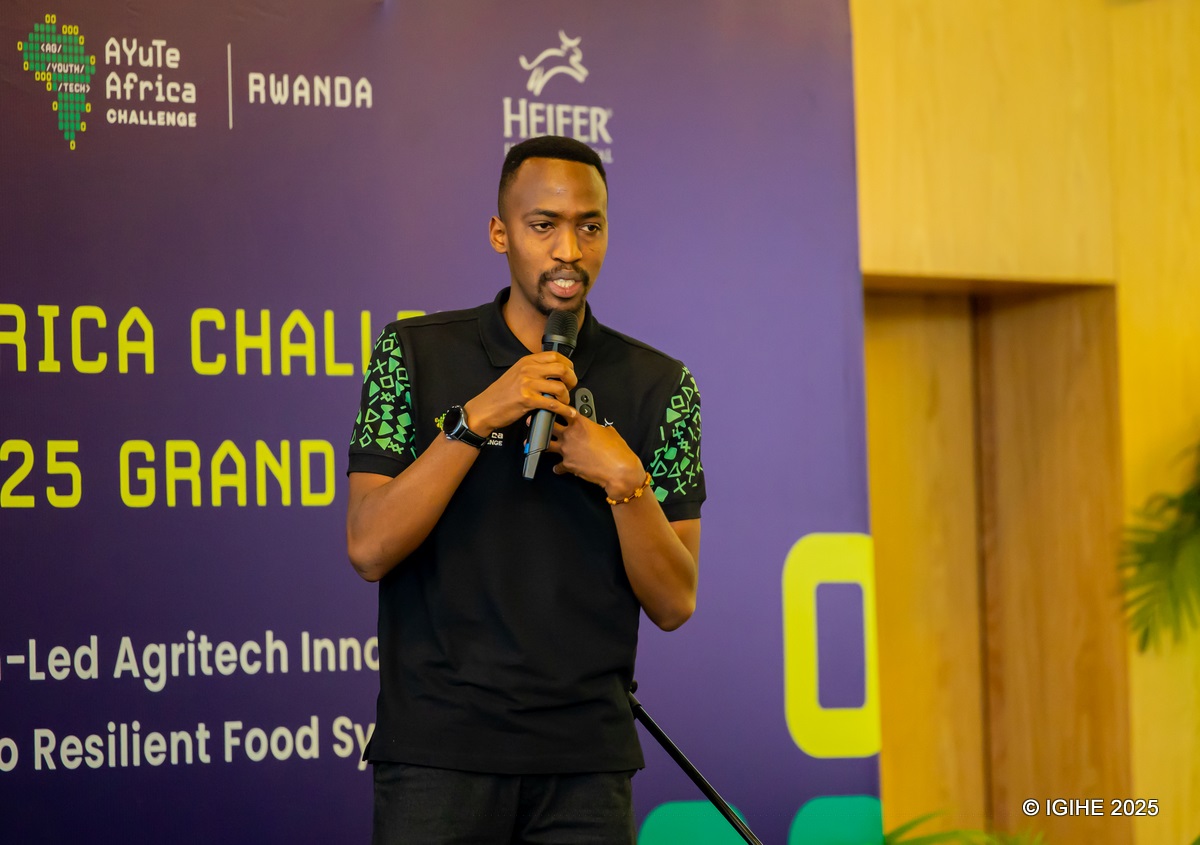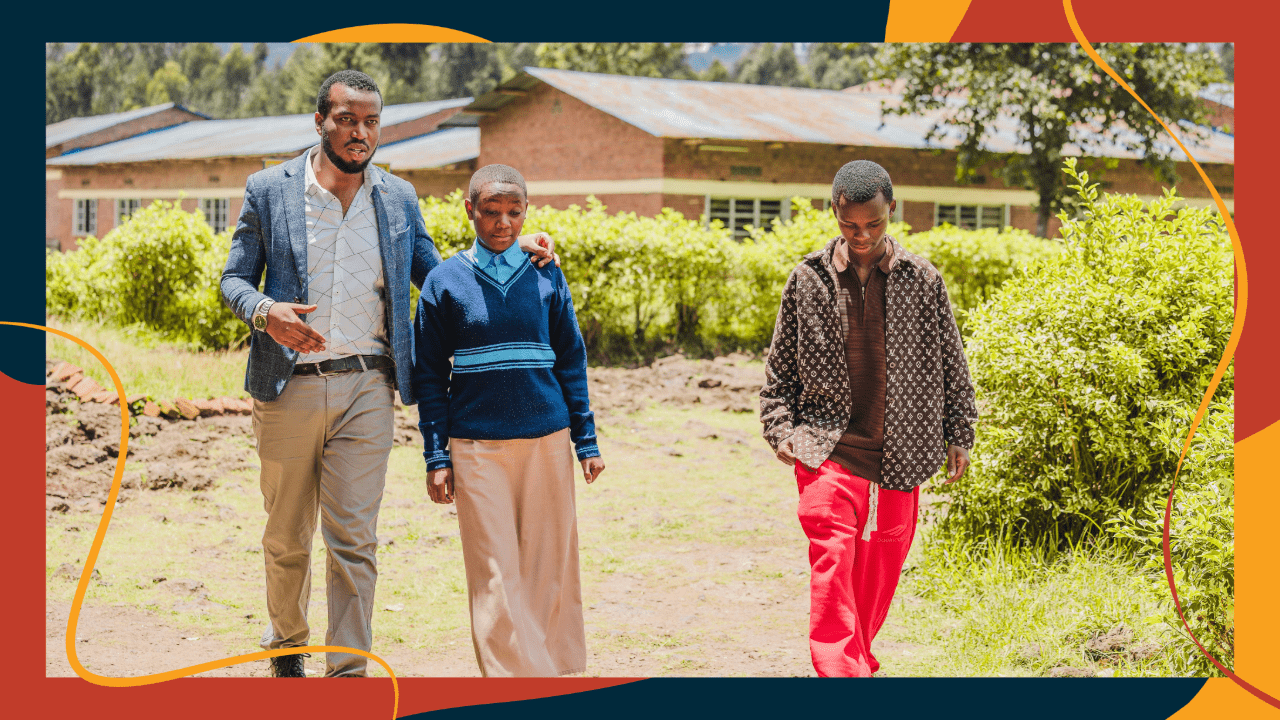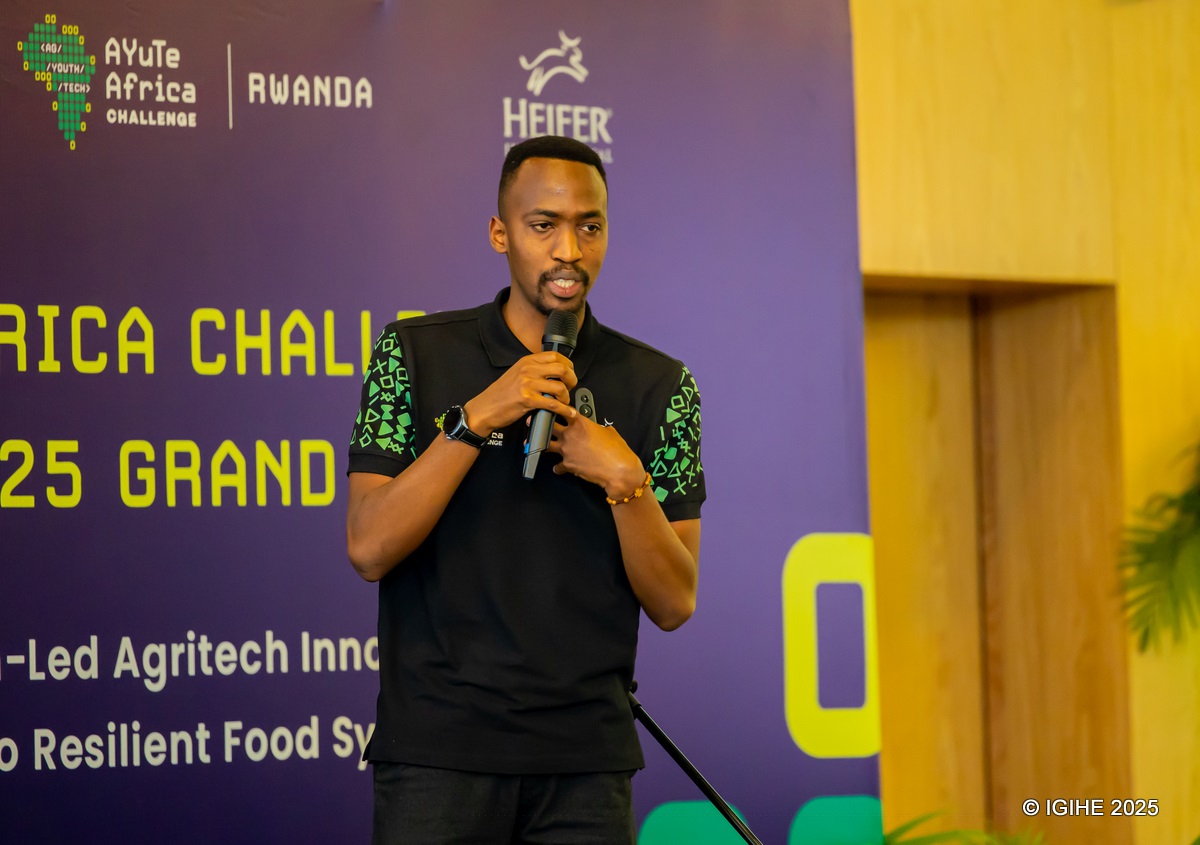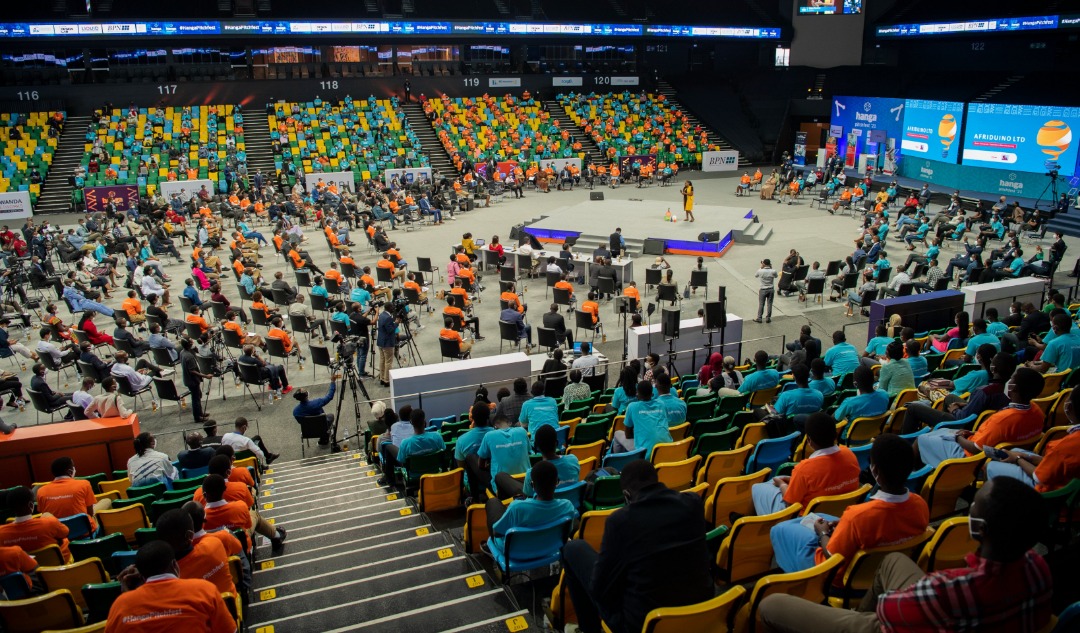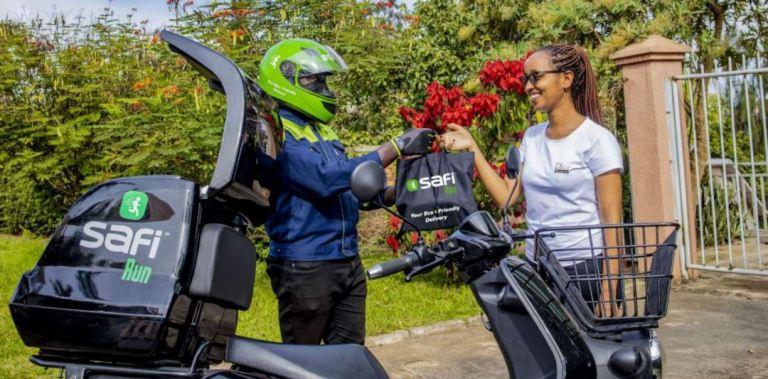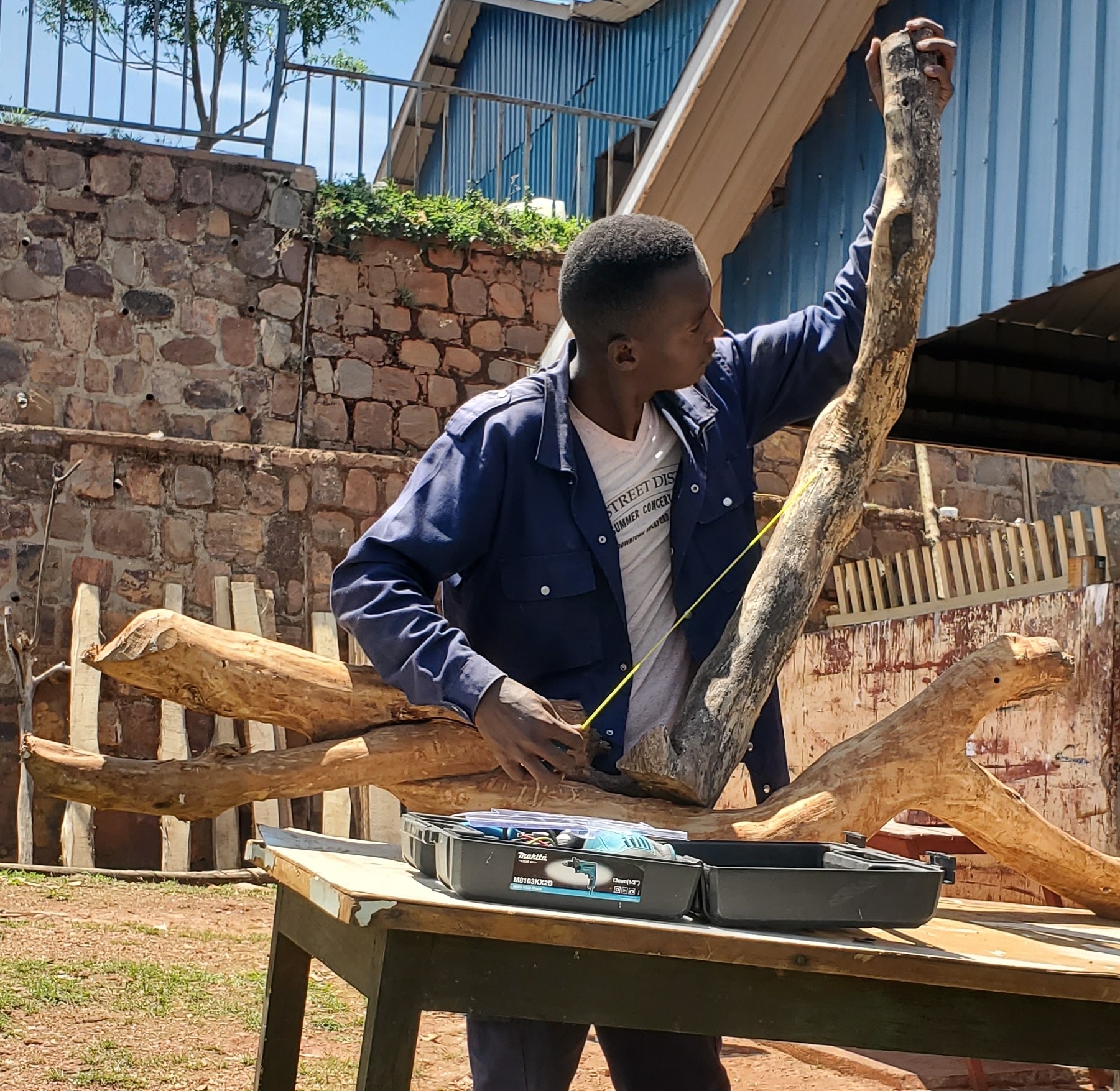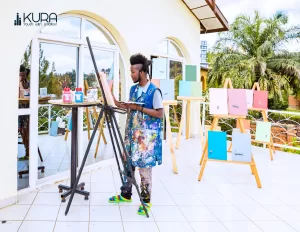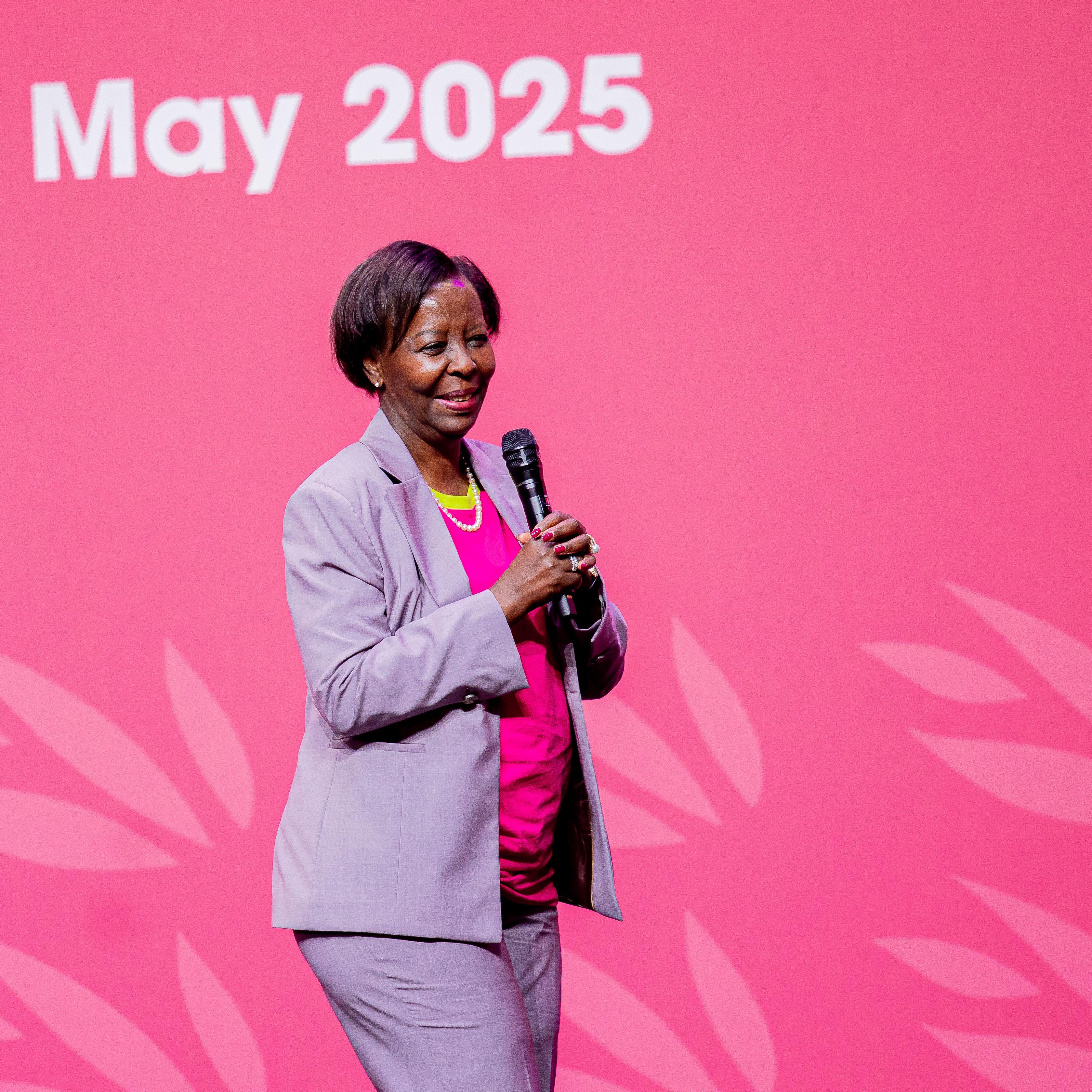At just 25 years old, Muyombano Happy Axel is leading a tech-driven revolution in Rwandan agriculture. He’s the founder of Ampere Vision Rwanda, a startup developing AI-powered drones that detect pest-infested crops and spray pesticides with pinpoint accuracy—saving farmers time, money, and resources.
Instead of the traditional method of spraying entire fields with chemicals, Muyombano’s drones identify only the affected plants and target them directly. Even irrigation is smarter—drones water crops based on how much moisture each one actually needs.
Currently a third-year university student, Muyombano explains that his innovation is designed especially for smallholder and mid-sized farmers who often lack access to affordable precision farming tools. By using AI, he says, they can treat larger plots faster, more efficiently, and at a much lower cost—because chemicals are only used where they’re needed.
Speaking with KURA, Muyombano broke down how the technology works:
“This is what we call AI-powered farming,” he said. “We train a drone’s camera to behave like a human eye. Once programmed, it can recognize the visual differences between a healthy crop and one that’s diseased. The drone then knows exactly where to spray and what to leave alone.”
As the drone flies over the field, it scans the crops and collects data in real-time. When it detects a plant under attack by pests, it automatically sprays the appropriate pesticide—saving chemicals, protecting the environment, and increasing efficiency compared to traditional machines.
The best part? It only requires one technician to operate the system. The farmer provides the pesticide, and Ampere Vision Rwanda handles the rest, charging only for the spraying service.
Muyombano began developing the project in 2023. After a series of successful tests, the innovation began turning heads—and winning awards. All that’s left now is final approval to operate drones commercially. What’s holding him back? Resources.
“We’re currently looking for funding to buy the equipment we need to launch fully,” he said. “By 2028, we hope to have at least 50 drones—each carrying 10 liters of pesticide—so we can serve large areas and scale our services affordably, without relying on external aid.”
Muyombano believes young people need to shift their mindset when it comes to entrepreneurship.
“Too many focus on finding money first, instead of developing a solid project. But a strong idea opens its own doors,” he said. “Rwanda offers a lot of opportunities for youth. But in a few years, we won’t be the ‘youth’ those programs are designed for. You have to be ready when opportunity shows up—otherwise, it passes you by.”
His vision is already being recognized across Africa. Muyombano’s project placed among the top five at the 2025 AYuTE Africa Challenge, a major competition that drew over 500 agritech startups from across the continent.
What started as a simple idea is now on the verge of transforming farming in Rwanda—and setting a new standard for agricultural innovation in Africa.
